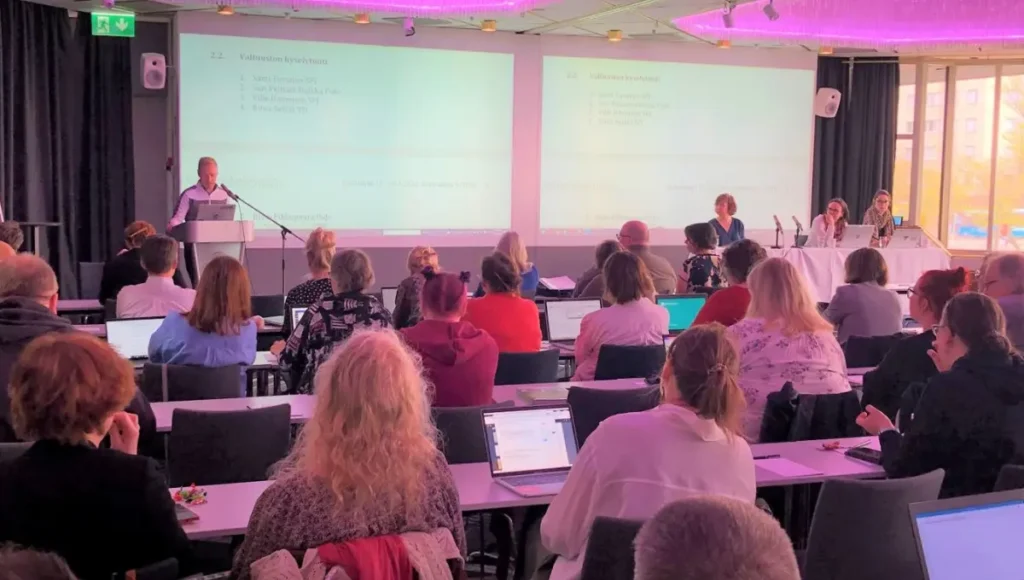The Education Labour Relations Council (ELRC) is an influential entity in the education sector, dedicated to ensuring smooth labor relations and influencing policies that shape the educational landscape. In this article, we delve into the key functions, significance, and FAQs surrounding the ELRC.
What is the Education Labour Relations Council?

The Education Labour Relations Council (ELRC) is a vital organization in the education sector, responsible for mediating labor disputes and influencing educational policies. It serves as a bridge between education authorities and educators’ unions, striving for harmony and excellence in education.
The Significance of ELRC
- Promoting Labor Harmony: ELRC plays a pivotal role in fostering peaceful labor relations within the education sector, reducing conflicts that could disrupt the learning environment.
- Policy Influence: Through its negotiations and advocacy, ELRC influences policies that impact educators, students, and the entire education system.
- Educational Excellence: By ensuring fair working conditions for educators, ELRC indirectly contributes to better educational outcomes.
The Role of ELRC in Shaping Education
ELRC actively engages in the development of educational policies and regulations. Its influence spans areas such as curriculum development, teacher qualifications, and student assessments. The council’s input ensures that policies are realistic and considerate of educators’ needs.
Amidst the ever-morphing landscape of education, a singular entity emerges as an epitome of cooperation and synergy, diligently championing the cause of both educators and educational institutions.
The Education Labour Relations Council (ELRC) assumes a pivotal role in nurturing harmonious relations amongst education stakeholders, tirelessly endeavoring to cultivate a congenial educational milieu. In this exposition, we shall plunge into the distinctive mandate of the ELRC and its profound influence on the educational sphere.
Unveiling the Enigma of the ELRC
The Education Labour Relations Council is an institution of a specialized nature, predominantly operational in South Africa, yet its fundamental tenets can potentially serve as a prototype for education systems worldwide.
Inaugurated in the year 1994, the genesis of ELRC was the pressing need to nurture comprehension, collaboration, and productive interactions among diverse stakeholders within the education sector. It comprises emissaries hailing from teachers’ unions, educational authorities, and sundry other entities intricately interwoven with the educational framework.
The ELRC operates within the overarching ethos of constructive engagement, wherein all stakeholders convene to deliberate upon issues, negotiate agreements, and ascertain common ground. Its jurisdiction encompasses both the public and independent education domains, championing equitable labor practices and steadfastly pursuing excellence in the realm of education.
Pivotal Functions of the ELRC:
Herein lies an enumeration of the cardinal functions performed by the ELRC:
Collective Bargaining:
- One of the central imperatives embraced by the ELRC is the facilitation of collective bargaining between teacher unions and educational authorities.
- This multifaceted process encompasses negotiations spanning diverse facets of employment and working conditions, encompassing salaries, benefits, and avenues for professional development.
- Through its mediation, the ELRC endeavors to strike an equilibrium between the interests of educators and the fiscal viability of educational institutions.
Dispute Arbitration:
- Conflicts, an inevitable facet of any system, do not elude the precincts of the education sector. The ELRC assumes the mantle of a dispute arbitration mechanism, affording a platform for parties to amicably resolve dissensions. This judicious approach circumvents the protraction of costly and protracted legal battles, thus ensuring that resources are channeled toward the augmentation of the quality of education.
Policy Formulation:
The ELRC plays an indomitable role in the formulation of policies within the educational domain. It convenes a confluence of erudite experts, policymakers, and representatives hailing from diverse educational associations to craft policies that cater to the evolving requisites of educators and learners alike. These policies are aimed at creating a milieu conducive to the pedagogical process.
Professional Advancement:
- Education, an arena perennially in flux, mandates continuous professional advancement for educators to remain pertinent. The ELRC champions initiatives aimed at nurturing the professional growth of teachers, ensuring that they have unfettered access to training, resources, and requisite support for the augmentation of their competencies and knowledge base.
The Influence on Education

The ELRC’s sui generis approach to labor relations has cast an indelible impact on the South African educational echelons. The following delineates some of its salient benefits:
Equilibrium:
- By fostering a tapestry of dialogue and cooperation between educators and educational authorities, the ELRC has contributed substantively to the overall equilibrium of the educational sector. This equilibrium assumes paramount significance in engendering an ambiance wherein the pedagogical process burgeons.
Educational Eminence:
- Through its forays into policy formulation and the facilitation of professional development endeavors, the ELRC has played an instrumental role in elevating the caliber of education in South Africa. Teachers are now better equipped to administer efficacious instruction, thereby culminating in enhanced learning outcomes for students.
Equity and Parity:
- The ELRC ensures that educators are treated with judicious equity and parity concerning employment conditions and remuneration. This commitment to fairness accrues benefits not solely to educators but also underpins a motivated and zealous teaching fraternity.
Mitigation of Disputes:
The ELRC's conflict resolution mechanisms have efficaciously mitigated the prevalence of protracted labor disputes within the educational sphere. This translates to the judicious allocation of resources toward the amplification of education, rather than being frittered away in legal wrangling.
In Summation:
The Education Labour Relations Council stands as a luminous exemplar of the transformative potency engendered through collaboration and constructive engagement within the realm of education. Its instrumental role in the sphere of collective bargaining, dispute arbitration, policy formulation, and professional development has catalyzed a salutary metamorphosis in the panorama of South African education.
Read More:
Latest True Education: Nurturing Minds for a Brighter Tomorrow
